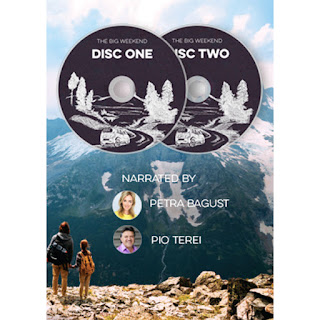We were delighted to have James Beck from The Parenting Place join us at East Taieri Church last weekend. James spoke on Sunday morning and at our EPIC youth on Sunday evening, as well as giving an excellent workshop on Monday evening. Some of my reflections:
People of all ages found it very helpful to be applying a biblical Christian worldview to topics like sex and technology. While these aren't always dealt with openly in churches, I'm delighted to be part of a church which isn't afraid to address these issues. Good, healthy conversations have started. That may be the most important result. Interestingly, many of the "technology" articles on the Parenting Place website are also found on the "communication" section.
James recommended many helpful, practical resources such as "Our Pact" - a free app which can help parents and children put in place agreed boundaries on smartphone use. "The Big Weekend" is a CD resource available from the Parenting Place for $25 which helps start conversations on topics such as sex and puberty, preparing children for the teen years ahead.
When it came to dealing with pornography, James mentioned the website: "Fight the New Drug". Statistically, most children will have seen some kind of pornography (perhaps by mistake) by the time they enter the teenage years. Filtered internet can help avoid that, but the best filters are the ones that you help your children develop in their own head - self-control and character.
We also have some books available in our church library. One new one called "Right Click: Parenting Your Teenager in a Digital Media World" has practical ideas for parents and discussion questions. It has helpful chapter titles like "How can I help my family actually be together when we're in the same room" and "How can I supervise what my kids are saying and sharing without making them feel like they're under surveillance?"
However, the biggest opportunity I saw from our weekend was not just for parents establishing better internet safety boundaries for their children (important as that is) but in helping children appreciate that their identity need not be dependent on what others think of them, or say about them on facebook or instagram. Nor is identity found in sport or academic success, or work, or relationships. We can help young people discover their true identity is in Christ as someone made in God's image and loved by God. They are someone God sent Jesus to die for so they could have life to the full. Living by grace, knowing they are loved and accepted means a young person is far less likely to give in to sexting (a message where someone tells them they are attractive and asking for a picture of them naked), or flattery from an online predator who is grooming them.
It is scary to hear how many digital messages we are all exposed to daily which tell us we aren't attractive enough, or sporty enough or smart enough... However, we have the opportunity to counter this by telling our young people that we love and value them as they are. And that God loves and accepts and welcomes them just as they are. By God's grace, we will all grow and develop, but the acceptance message comes first. As a preacher, and a parent, I found that a helpful reminder.
I am excited when biblical thinking is applied to real life issues in helpful ways. The relevance of a Christian worldview to these practical life issues challenges our often unspoken assumption that "church" is only about the "religious" part of my life and has no relevance to weekday issues. No more artificial secular/sacred. The fantastically good news of Jesus is relevant to every part of our lives.
Martin.


1 comment:
Hi Martin, you pointed me to a Bible app at church after presenting this message and so I exploded the concept and found a fantastic NKJV bible audio which I now listen to almost every day now, so thank you for your help, it has been a huge blessing in my life.
Rodney
Post a Comment